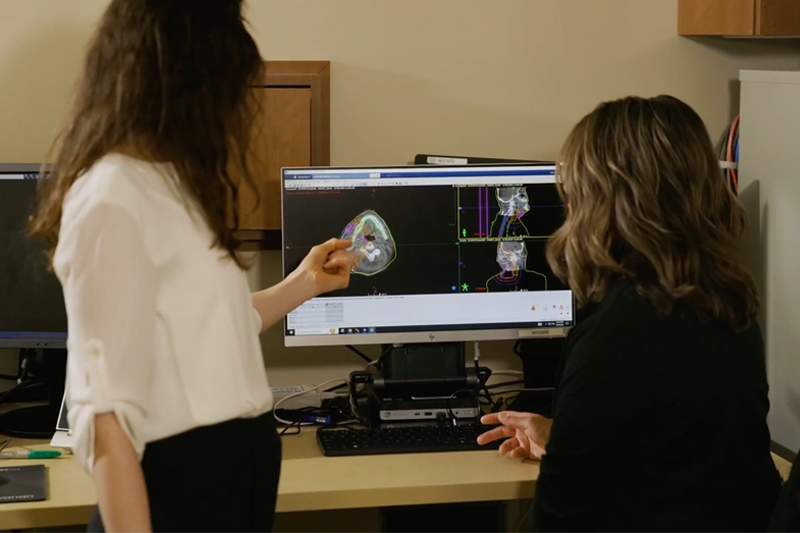Rehabilitation
Does your therapist know what to do with your cancer history?
 Decreased heart function years after cancer treatment may not be an isolated problem. It may be related to your cancer history and treatment. The same is true with low back pain due to osteopenia or osteoporosis. These may be late-effect symptoms of your cancer treatments.
Decreased heart function years after cancer treatment may not be an isolated problem. It may be related to your cancer history and treatment. The same is true with low back pain due to osteopenia or osteoporosis. These may be late-effect symptoms of your cancer treatments.
If referred to a Cancer Physical Therapist early on, these late-effect symptoms are often preventable. At Riverside Medical Center,we offer a Cancer Physical Therapy Survivorship Program. Our concern goes beyond preventing lymphedema or gaining function after mastectomy. We also work with you to prevent late-effect symptoms of cancer treatments, allowing you to enjoy a maximum quality of life.
From the moment of diagnosis, most patients will go through a series of events involving two or more of the following:
- Diagnosis/Diagnostic Procedures
- Surgery
- Chemotherapy
- Radiation
- Reconstruction
Each event potentially poses concerns including, but not limited to: pain, swelling, loss of motion, and loss of function. All of these concerns can be adequately addressed if referred to Physical Therapy as soon as possible for a better quality of life.
Lymphedema Therapy at Riverside
Lymphedema is a chronic, debilitating disease of the lymphatic system. This condition develops when the lymph pathways are unable to circulate the excess fluid within the tissues, causing swelling.
Lymphedema is often seen in patients who have undergone surgery and/or radiation for cancer treatment. However, it can also be related to patients who have a genetic predisposition to the disease, a traumatic injury, tumor growth, or other infections.
Common complications include:
- Severe pain
- Loss of mobility
- Tissue changes (fibrosis)
- Muscle atrophy
- Impaired wound healing
- Reduced quality of life
Lymphedema therapy combines manual techniques, compression wrapping/bandaging and exercise to relieve pain and swelling from lymphedema. A case of lymphedema means lifelong management. Although there is no cure for lymphedema, daily treatment of Complete Decongestive Therapy (CDT) can reduce swelling and decrease complications. Effective long-term lymphedema management generally requires in-clinic treatment with a Physical Therapist or a Physical Therapist Assistant certified in lymphedema treatment, followed by daily home maintenance.
CDT has four components:
- Manual lymphatic drainage (MLD)
- Bandaging and pressure garments
- Exercises
- Meticulous skincare
Additional treatment methods may include:
- Kinesio Taping
- Myofascial Release (MFR)
The goals of treatment include:
- Reducing swelling and infection
- Establishing new pathways for lymph fluid
- Reducing scar tissue and fibrosis
- Improving strength, range of motion,
and use of arms and legs - Decreasing pain
- Improving function

Meet Our Cancer Care Team
Riverside’s board-certified oncologists specialize in the prevention, early detection and treatment of all types of cancers. Working together and with you, we’ll create a personal plan to wellness.
Meet Our Team
Cancer Conversations, Real Answers
Join our experts for myth-busting insights, new treatments and inspiring patient stories. Supporting you every step of the cancer journey.
Listen Now
Get in Touch
Whether you need to find the right specialist or have any questions or concerns, we’re here to help.
Call Us: (815) 933-9660